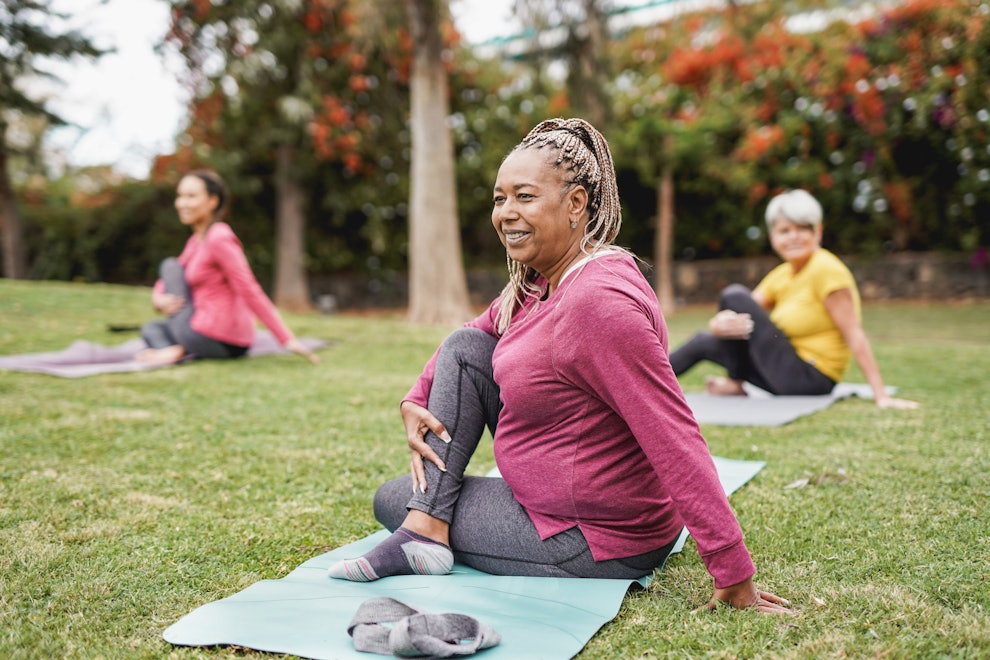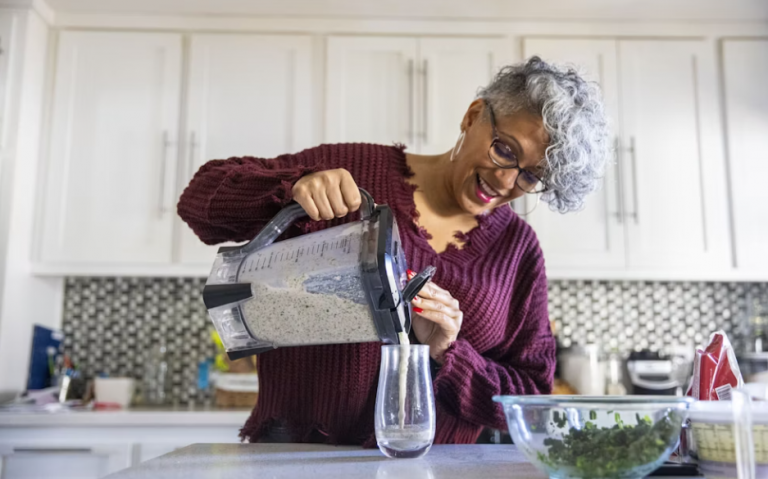
Disclaimer: If you are pregnant, nursing, taking any medication, or under medical care, consult a physician or healthcare professional before use. This product should be used only as directed on the label. Consult a physician before use if you have a serious medical condition or are taking prescription medications. Consult a physician before using this or any supplemental dietary product. All trademarks and copyrights are the property of their respective owners and are not affiliated with or endorsed by this product. These statements have not been evaluated by the FDA. This product is not intended to diagnose, treat, cure, or prevent any disease. Individual results will vary. By using this site, you agree to be bound by the Privacy Policy and all Terms and Conditions posted on this site. THIS IS AN ADVERTISING AND NOT AN ACTUAL NEWS ARTICLE, BLOG OR CONSUMER PROTECTION UPDATE. MARKETING DISCLOSURE: This website is a marketplace. So, you should know that the owner has a monetary connection with the products and services advertised on the site. The owner gets paid whenever a qualified lead is referred to them, but that’s about it. ADVERTISING DISCLOSURE: This website and the products and services mentioned on it are advertising platforms. This site is an advertisement and not a news publication. Any photographs of people used on this site are of models. The owner of this site and the products and services mentioned on this site only provides services to enable consumers to obtain and compare them.
Many older Americans experience loneliness, either from friends moving or passing away or from a lack of workplace interaction once they retire. In fact, the CDC reports one-fourth of adults over 65 suffer from social isolation.
However, loneliness is not a default state in retirement. There are many ways to make new friends as you transition to a work-free lifestyle. Continue reading for seven of the best ways to make friends in retirement.
Social Struggles in Retirement
We spend about forty hours a week working for most of our lives. Often that time is full of conversations with coworkers and interactions with clients or customers, both of which can be beneficial to our social health. After retirement, we gain those forty hours back but lose some of our social interactions in the process.
Multiple studies have revealed a higher likelihood of feeling isolated or lonely after retirement, especially for men. A 2023 study theorized this loneliness stems from losing peripheral social ties to acquaintances and coworkers we see daily.
Fortunately, researchers are hopeful that with intentional action, an older adult can build up a strong social network and create peripheral social connections with neighbors, friends in retirement communities, and others.

Loneliness and Health
Healthy living initiatives often focus on movement and nutrition and while these factors are important, they aren’t the only ones impacting overall health. According to a landmark 2020 study, loneliness has the same impact on health as smoking 15 cigarettes a day.
Loneliness often contributes to cognitive, physical, and mental health issues, including:
- Depression
- Anxiety
- Alzheimer’s disease
- Dementia
- Heart disease
- Parkinson’s disease
- High blood pressure
- Weakened immune system, increasing the likelihood of physical illness
The risk of these health impacts can be lowered through a thriving social life and making friends. Even making one new friend or joining an established group to try out a new hobby may have a huge impact on someone’s social health.

7 Ways to Make Friends in Retirement
1 | Find Groups that Align With Your Hobbies
Those who want to make new friends should consider joining established groups or making time for social activities. Many community centers, religious organizations, and small businesses gather those with similar interests for regular meetups. If someone lives in a retirement community, there may be groups onsite for different hobbies, to improve physical and mental health, and to meet other residents.
To increase your chance of cultivating meaningful relationships, join groups that align with your interests. Popular groups to join include:
- Religious small groups, such as a Bible study or Halaqa group
- Community garden clubs
- Walking clubs
- Neighborhood associations
- Game night clubs
- Classes around a specific interest, such as dance or photography
- Book clubs
If struggling to find groups or in-person events, turn to the internet. Many local organizations post events online. When starting online research, here are some websites to explore:
- MeetUp: this free online platform is a place for local organizations to post about different events.
- Facebook Groups: for those who have a Facebook account, search for groups in the area that align with personal interests or scroll through the “events near you” section.
- BumbleBFF: to meet people one-on-one, consider joining Bumble BFF, an app that matches individuals with similar interests.
2 | Set Aside Time for Regular Meetups
Friendships require time and energy to build and maintain. If someone is looking for new friends, they may want to set aside specific time for one-on-one or group activities. For retirees, this could be one hour daily or a single day where the intention is to meet someone new or try a group activity.
When investing time and energy, the key is to be intentional. Research local events aligned with your interests and add them to your calendar ahead of time. Social media groups on Facebook, the newspaper, and community boards are great places to find events that attract like minded people.
If you plan your week in an agenda or diary, set aside time for finding friends and maintaining friendships with older friends. In that time, older adults can:
- Attend weekly meetups for a new group, such as an event for dog owners or a fundraiser hosted by local charities. Meetups that happen regularly are also a great way to see the same people, such as other dog owners or those who are passionate about the same causes.
- Stay connected with older friends and try to see them on a regular basis when possible. If they live far away, consider starting a private social network group where everyone can share life updates.
- Research free events, such as local markets, festivals, or parades, where there could be potential friends and add them to your calendar.
3 | Volunteer or Find a Part-time Job
At work, many connections are forged or strengthened when collaborating on projects. A great way to get that same camaraderie is through volunteering. Volunteers make a positive impact on their community and often work with others who share their passion for a specific issue.
Some common places that often need volunteers include:
- Soup kitchens
- Thrift stores like Salvation Army
- Hospitals (to cheer up patients)
- Schools with limited resources
- Community centers
- Public libraries
- Animal shelters
If unsure how to find a group to volunteer with, start by brainstorming the causes that matter to you. Next, Google those causes and the name of your hometown and see what organizations pop up. Nonprofits should list their contact information on their website, making it easy to call or email them.
Others may find it meaningful to take up a part-time job during their retirement years. In these roles, many older adults find new people to be friends with and feel less socially isolated. However, these jobs often require a larger commitment than volunteer opportunities.
4 | Join an Exercise Group
What’s better than improving social health or physical health? Improving both at the same time. Exercise groups allow senior citizens to make friends and stay fit. Plus, the accountability of working out with others makes health goals easier to achieve.
For those with gym memberships, ask if there are any exercise classes included. If someone doesn’t have a gym membership, they can ask a community center if they host exercise classes.
When exploring different workout options, consider low-impact options (ex. exercises in water) and avoid workouts with heavy weights or high impact (ex. running or HIIT), unless already accustomed to more extreme exercises.
Some excellent workout classes for older adults include:
- Chair yoga
- Water aerobics
- Swimming
- Pilates, especially when through a medical fitness center
- Chair workouts
Note: Those with lower mobility can take classes and stay physically active as well. For more information on activities lower mobility adults can take advantage of, visit this resource.
5 | Reconnect with Old Friends
After retirement, we often lose touch with friends. Some may move closer to grandchildren while others are coworkers we no longer see at work. If someone feels lonely and needs a social boost, calling or texting an old friend is a great place to start.
To make reaching out easier, don’t wait for a perfect time. Instead, send a message today. If confused about what to say when reconnecting, here are some ideas:
- I enjoyed your recent Facebook post. Would love to catch up sometime soon.
- There’s a new class at the community center I want to try. Want to join me?
- You crossed my mind recently. How are things going?
- I was in your neck of the woods recently and thought of you. How have you been?
- I just wanted to say I’m thinking of you. How is everything going?
Reconnecting can also take time, so it’s good to have healthy expectations. It may take someone time to respond and the response may be small, not life-changing, but it’s still worth it to reach out and try to rekindle that relationship.
6 | Practice Self Care
When finding friends, it’s important to be a good friend to yourself. When someone practices self-care, they show up to social interactions confident and ready to put their best foot forward.
Meaningful self-care ideas include:
- Reading a good book
- Staying active
- Practicing mindfulness
- Exercising the brain with puzzles or foreign language lessons
- Spending time in nature
For more ideas on self-care, and how to incorporate your social health into a self-care routine.
7 | Spend Time in Public Spaces
When we retire, we often maintain relationships with close friends and family. What is often lost is peripheral social ties. These are relationships we have with acquaintances who aren’t friends, but who we interact with daily. For workers, this often includes coworkers they chat with during a coffee break or a client whom they meet up with once a month to review their accounts.
To maintain peripheral social ties, spend time in public spaces. Public spaces include:
- A gym where someone says hi to those who exercise at the same time
- A park where someone takes a daily walk
- A library to check out books and attend literary events
For stronger peripheral ties, frequent public spaces regularly, such as drawing in the park every day at 10 am or attending a weekly poetry reading at a nearby bookstore once a month. Along with developing peripheral ties, spending time in public spaces may lead to genuine friendships with others who enjoy the same hobbies.
Making friends in retirement and keeping up with them can be daunting, but it’s not impossible. By intentionally filling your time with activities, groups, and hobbies you enjoy, you’ll begin to attract a community of like-minded friends.








Blog Comments
admin
12 April 2016 at 08:30
Lorem Ipsum is simply dummy text of the printing and typesetting industry. Lorem Ipsum has been the industry’s standard dummy text ever since the 1500s, when an unknown printer took a galley of type and scrambled it to make a type specimen book. It has survived not only five centuries.
nathan ford
11 August 2016 at 05:03
Lorem Ipsum is simply dummy text of the printing and typesetting industry. Lorem Ipsum has been the industry’s standard dummy text ever since the 1500s, when an unknown printer took a galley of type and scrambled it to make a type specimen book. It has survived not only five centuries.